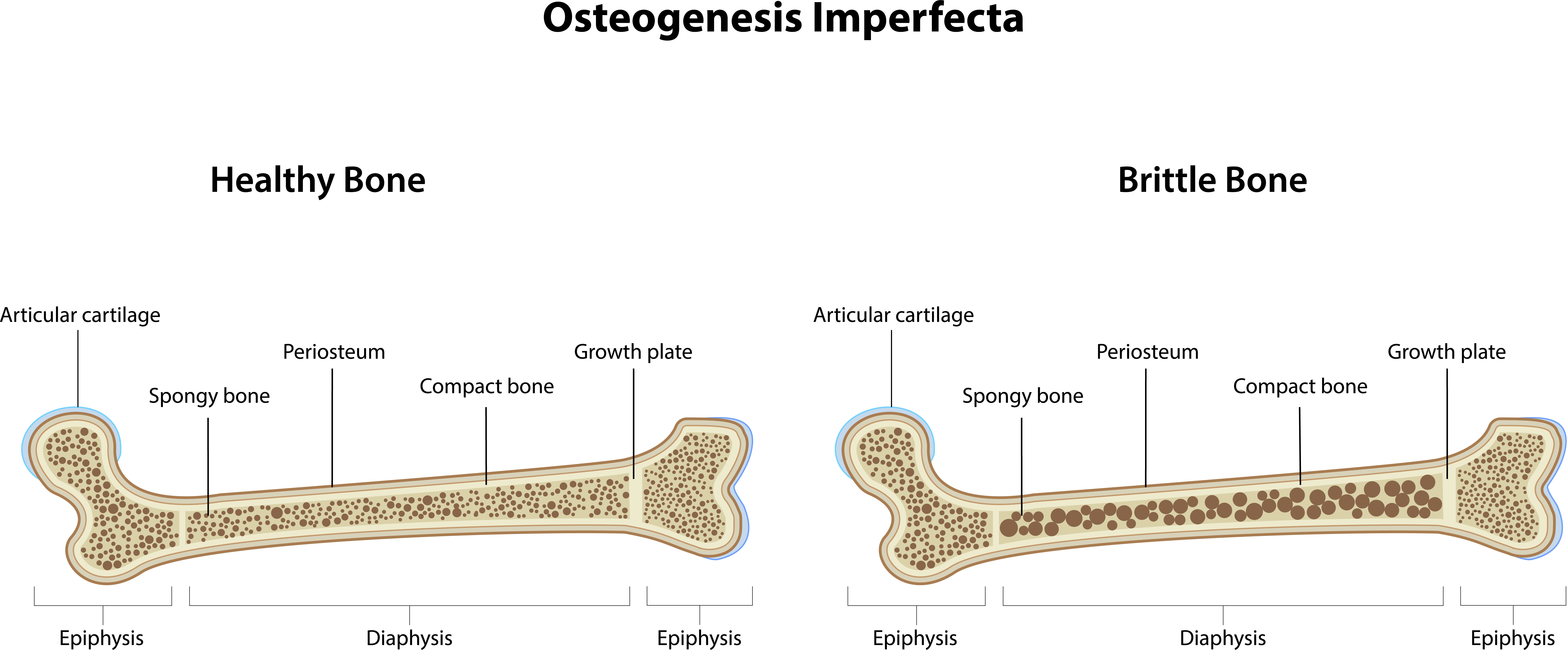Osteogenesis imperfecta (OI) is a rare genetic disorder that, like idiopathic juvenile osteoporosis (IJO), is characterized by bones that break easily, often from little or no apparent cause. However, OI is caused by a problem with the quantity or quality of bone collagen resulting from a genetic defect.
 An infographic showing the differences between healthy bone and brittle bone as a result of osteogenesis imperfecta. Image Credit: joshya / Shutterstock.com
An infographic showing the differences between healthy bone and brittle bone as a result of osteogenesis imperfecta. Image Credit: joshya / Shutterstock.com
Most children with osteogenesis imperfecta never attain normal bone mass and so suffer from secondary osteoporosis as well. There are several distinct forms of OI, representing extreme variations in severity. For example, a person with OI may have as few as 10 or as many as several hundred fractures in a lifetime.
The most common features of osteogenesis imperfecta include:
- Bones that fracture easily, ligament laxity (hypermobile joints) and low muscle strength
- A family history of OI (present in about 65% of cases)
- Small stature in moderate and severe types
- Sclera ("whites" of the eyes) tinted blue, purple, or grey in about 50% of cases
- Possible hearing loss in late childhood or early adult years
- Possible brittle teeth (known as dentinogenesis imperfecta)
The features that most often distinguish osteogenesis imperfecta from juvenile osteoporosis are the family history of the disease and the blue, purple, or grey sclera commonly found in patients with OI. Distinguishing between OI and IJO may require genetic testing or, in some cases, bone biopsy.
OSTEOGENESIS IMPERFECTA (OI), Causes, Signs and Symptoms, Diagnosis and Treatment.
Further Reading
Last Updated: Jan 25, 2021